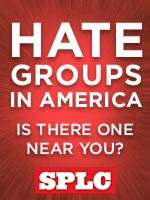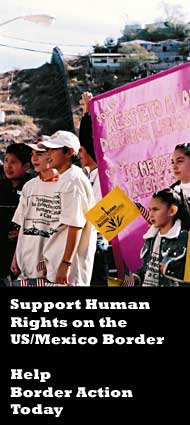Readers in the Southwestern USA are probably aware of it, but others might not know that leaders of the Church of Jesus Christ of Latter-Day Saints (LDS), whose members are informally called Mormons, have formally taken sides in the California anti-gay proposition banning "gay" marriage. In a move that has divided Mormons themselves, the church is actively soliciting its members to oppose both CA Proposition 8 and the similar Arizona Proposition 102. From The Advocate: A letter sent to Mormon bishops and signed by church president Thomas S. Monson and his two top counselors calls on Mormons to donate ''means and time'' to the ballot measure. A note on the letter, dated June 20, says it should be read during church services on June 29, but the letter was published Saturday on several websites.
Hello.
Following is an open letter to Mormons drawing parallels between 19th C Christian zealots' vicious persecution of Mormons and 21st C Christian zealots' vicious persecution of gay men and lesbian women. The parallels, while not exact, are close enough: zealots lack compassion, allegiance to constitutional justice, and humility. Consequently, they behave in ways that de-humanize themselves and others to a degree that often cannot be measured, much less atoned for. It might be expected that Mormons would understand this simple fact better than most and refrain from acting to restrain others' constitutional rights on the basis of malicious bigotry.
I suspect you know the name "Fancher."
For those who don't, one Capt. Alexander Fancher headed "the Fancher Train," a wagon train passing through Mountain Meadows, UT, en route to California in September, 1857. The Salt Lake Tribune reported what happened:
"A California-bound wagon train of about 140 Arkansas emigrants led by John Baker and Alexander Fancher camped near the present-day southwestern Utah town of Enterprise in September 1857. Fears that the U.S. Army was preparing to forcefully remove Brigham Young as Utah territorial governor and impose martial law were at their height. Spurred by inflammatory sermons of LDS leaders, a siege mentality focused Mormon resentment on the 'gentile' wagon train.This is a bitter part of American history. Accordingly, historians for decades have debated the motives for and precise authority for this massacre. They need not concern us here.
"Early on Sept. 7, a group of American Indians and local Mormon 'Indian missionaries' attacked the encircled wagon train without warning. ... With their ammunition, food and water almost gone, the emigrants were persuaded by Mormon officials on the afternoon of Sept. 11 to surrender their arms in exchange for a safe escort past the Indians to Cedar City. ... On a pre-arranged command, the rescuers turned upon the emigrants, joined by Indians who had been lying in wait. Estimates of the death toll include 14 Arkansas men shot in the head, 12 women and 35 youngsters clubbed or knifed to death, with 17 children younger than age 8 surviving the double-cross.
"Nine cowhands hired to drive cattle also were murdered, along with at least 35 other unknown victims. In all, 120 people, mostly women and children, were slain." (Salt Lake Tribune, March 14, 2000, p. A-4)"
What I know beyond any doubt, and the main point of my recitation here, is that this massacre occurred in a wider context of abuse, violence, fear, and anger caused by America's perception of Mormonism.The reason most often cited was "Christian" opposition to Mormon practices. But whatever such practices were, and why they existed, and what good or evil they did or didn't spawn was not even remotely relevant. What mattered--all that mattered--was perception.
So violent was the storm of rhetoric and outrage that swept the country that Mormons believed their very lives depended upon making a strategic exodus, en mass, to Utah. So it can't have been a matter of perfect joy and tranquility when a wealthy and large wagon train of "Gentiles" (non-Mormons) appeared in the lush Mountain Meadows valley.
Who knew why they came, or where they were headed, or what would follow? Would the US Army come along shortly to evict everyone in favor of new settlers like these? Who could know? There must have been grave concern among everyone of good will, not just about the immigrants' ultimate intentions and their possible potential for being abusive or violent, but also about how the local people would respond if anything untoward did occur. At least that's how I imagine it.
I've been to Mountain Meadow. Without planning or even expecting to, I ended up on the hill overlooking the valley talking with a local descendant, a Mormon farmer who had climbed up to get a fix on his cattle's whereabouts. When he asked me what had brought me there, I just said that my grandmother was a Fancher. Nothing else was required.
We talked for an hour after my partner left for town to get our camera fixed.
I said I hadn't come for vindication, that I didn't even feel particular rage: 1857 was a long time ago. Rage seemed superfluous at best in 1997, and at worst, a ridiculous extravagance that would only perpetuate grief. So I told him that I had just wanted to come because I wanted to get a sense of what else might have happened on both sides. I said that while nothing could ever excuse that extermination, I had a feeling that events surrounding the massacre were more complicated than either side wanted to dwell on.
(And the debate is full of speculation. You can get a sense of it from the unsubstantiated entry about Mountain Meadows at Wikipedia. The fact is, we'll never know if some Christian supremacist acted in brute ignorance and committed an incindiary obscenity or not. Maybe, but we just don't know.)
We talked without animosity, almost as friends. In fact he told me things I'd never have known without him--that some of the children from the train had been brought up by the local families as their own, and where I could find the communal grave holding some of the remains.
He couldn't have missed the fact that we are a lesbian couple. It's evident wherever we go, in our interactions--the habitual fond gestures of a long-married couple--and in our tone and vocabulary with each other. Appropriately enough, that made no difference to him.
I couldn't have missed the fact that he is a Mountain Meadeows Mormon. It was evident in all he said about himself. Appropriately enough, that made no difference to me.
What mattered--the only thing that ever matters--was our mutual kindness and humility.
Though I can't know what transpired in 1857, I am sure that the leading actors on the stage that day were the same ones who are hogging the stage now, in today's debate about gays and lesbians. And then as now, when moral umbrage, misunderstanding, fear, and paranoia overshadow reason, the actual human beings caught up in the clash are rendered invisible. What becomes of them, what horrors play out in their numerous small daily lives as a result is also invisible. It can't be measured, much less accounted for. Only the extremes--the Matthew Shepards and the Mountain Meadows--are noted, and then too briefly.
So this is an appeal to you. You've seen the decades of misery that ensued from the massacre at Mountain Meadows. You know why it occurred, and what relationship it had to years of bigotry poured out on Mormons by "Christians" utterly convinced of their own superiority.
If you remember how it feels to be vilified, abused, ostracized, and penalized because of someone else's misconceptions, maybe you can summon a little humility and a little kindness. No matter what church leaders may tell you, when you pull the level, vote no on Arizona's Proposition 102 and no on California's Proposition 8.
It's only justice.



















1 comments:
Marvelous essay, Pico. Thanks for posting. VOTE NOT ON PROP 8!
Post a Comment